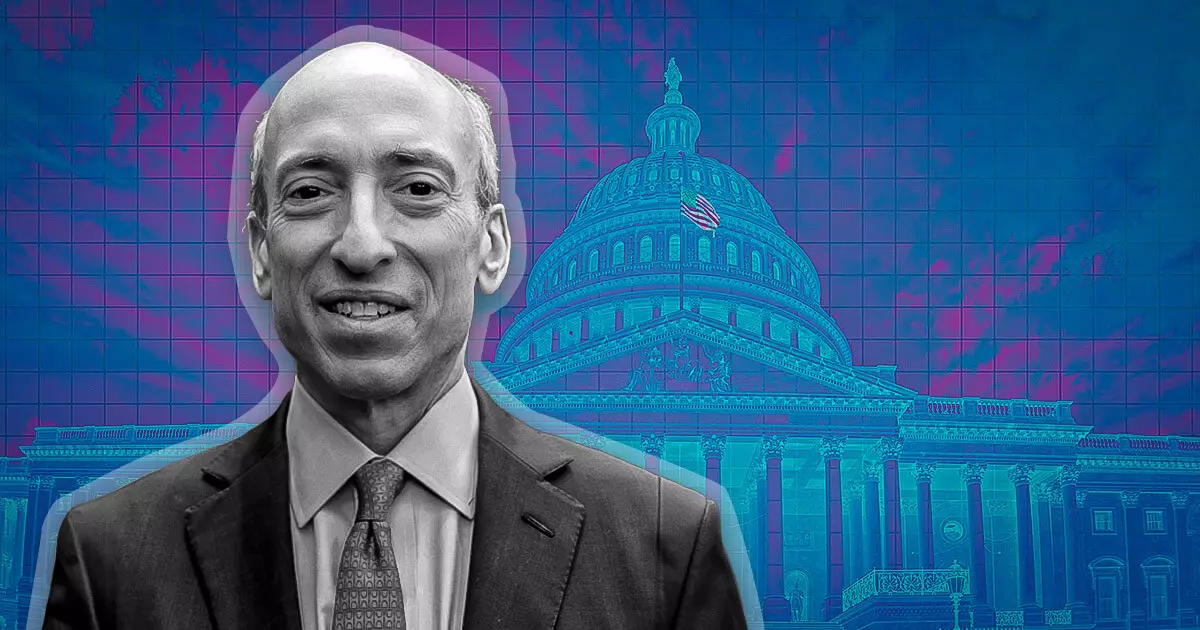The actions of Gary Gensler, the current chair of the U.S. Securities and Exchange Commission (SEC), have sparked significant outcry, particularly from critics within the cryptocurrency realm. Among the most vocal is Tyler Winklevoss, co-founder of the crypto exchange Gemini and a former Olympic rower, who has positioned himself as a significant adversary to Gensler’s regulatory approach. This critique underscores a broader dissatisfaction not only within the crypto community but also raises questions regarding the efficacy and motivations behind government oversight in the rapidly evolving financial landscape.
Winklevoss’s critiques suggest that Gensler’s decisions are not mere missteps of a regulatory leader but rather calculated moves driven by a personal and political agenda. This assertion frames Gensler as someone who does not merely enforce regulations but interprets them through a lens colored by his ambitions, potentially jeopardizing livelihoods and substantial investments within the cryptocurrency sphere. Winklevoss’s claim that Gensler’s actions were “thought out, intentional, and purposeful” highlights a concern that regulatory oversight could be weaponized against emerging industries instead of fostering their growth.
This perspective echoes a growing sentiment among innovators and entrepreneurs in the crypto sector who feel threatened by a regulatory climate that appears more punitive than protective. By characterizing Gensler’s regulatory approach as one that “nukes an industry,” Winklevoss evokes stark imagery of an overreaching government veering away from its protector role to that of a potential oppressor.
The rhetoric employed by Winklevoss reflects not only economic fears but also emotional distress felt among those invested in cryptocurrencies. He emphasizes that the consequences of Gensler’s actions extend well beyond immediate regulatory impacts, hinting at significant long-term repercussions such as job losses and a stagnated investment environment. The term “irrevocable damage” suggests a permanent alteration of the landscape, which resonates with other stakeholders who fear the crushing weight of overregulation. The core issue here revolves around trust—both in regulatory institutions and in the sustainability of the crypto industry under their oversight.
The outrage voiced by Winklevoss encapsulates a broader societal frustration with governmental authorities perceived as acting in self-interest rather than the public good. He articulates an increasingly common grievance: that public funds are being mishandled in attempts to bolster personal agendas of political figures rather than ensuring citizens’ welfare. This sentiment resonates particularly among elements of the electorate that call for more accountability and transparency in the actions of public officials.
Winklevoss’s assertion that Gensler should not hold any influential position in the future reflects a punitive stance towards those perceived as misusing power. The implications of his argument indicate a demand for systemic change not only in the SEC but across all governing bodies that interact with fledgling industries. Additionally, the reaction from the political arena—such as the pledge from former President Trump to terminate Gensler—reinforces the high stakes involved and illustrates the crystallization of anti-regulatory sentiment into tangible political action.
The ongoing legal disputes, such as the recent lawsuit from 18 U.S. states claiming government overreach, further unveil the complexity of Gensler’s regulatory landscape. These lawsuits challenge the agency’s actions as exceeding its intended oversight capacity. They underscore a glaring divide between innovation and regulation, posing questions about the SEC’s balancing act between consumer protection and industry growth.
While Gensler’s term extends until mid-2025, the potential for a new administration to reshape or replace leadership in the SEC is a point of interest. The names being floated, such as Dan Gallagher and Paul Atkins, suggest a possible ideological shift that could either align with or diverge from Gensler’s existing approach. Depending on who is appointed, future regulatory environments could either bolster the tech-driven economy or stifle it further due to stringent controls.
As the crypto industry evolves, so too must the frameworks that govern it. The criticisms levied against Gary Gensler and the SEC serve as a stark reminder of the delicate balance required in overseeing burgeoning industries. There is an urgent need to evaluate regulatory philosophies that emphasize enforcement over collaboration. The what-ifs, potential backlash, and ongoing tensions emphasize the issues at stake—not merely for a single industry, but for economic innovation and the underlying trust in regulatory institutions. Without a shift towards a more inclusive and supportive regulatory stance, the possibility of irrevocable harm looms larger, threatening not just cryptocurrencies but the very fabric of financial progress.

